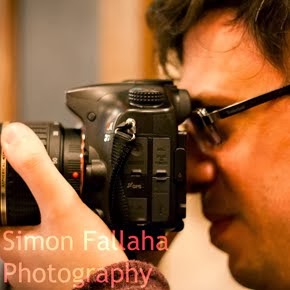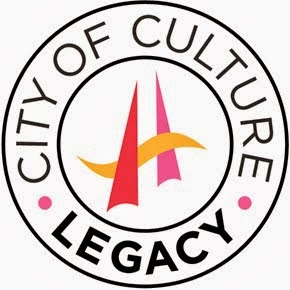The City Of Culture year closes on a sound theatrical note with a flawed but satisfying character piece
Three Monologues, written by award-winning Irish author Jennifer Johnston in response to The Troubles, is an oddball of a play. It wants to be about all kinds of things, but doesn't always get its points across in the clearest manner. It wants to exhibit naturalistic acting, but the performances often find themselves at odds with an uncertain script. It frequently relies on clichéd fallacies and foibles to try and draw empathy and laughter from the audience. And yet, almost in spite of itself, it clambers over the numerous little potholes in its path and serves up a satisfyingly ambitious experience, a sound note to close the theatrical year on.
The play is subtitled "Ananias, Azarias and Misael", referencing the three Holy Youths better known as Shadrach, Meshach and Abednego. Cast into a fiery furnace by Babylonian King Nebuchadnezzar after refusing to worship an idol, these three men survived, and the titular monologues attempt to tie in this Biblical story with the survival of three different characters who have all been metaphorically burned.
In "Twinkletoes", we meet drunken, self-pitying thirty-something Karen (Helen Behan), who initially opens up by lamenting money wasted on pointless hats and painful plastic shoes. With her terrorist husband locked behind bars for nearly a decade, and with her almost grown up daughter all but free from her clutches, Karen is made to dwell on the loss of things she once took for granted and on abandoning her dreams of becoming a dancer. The blinking, rarely twinkling eyes on parallel television monitors in the background emphasise this dying dream, this loss of youth.
Karen's information-heavy and not entirely straightforward soliloquy pounds itself in our faces rather anviliciously. This bitter tone will go on to envelop the whole play, and you can tell that Johnston's script, in the steady hands of director Caitríona McLaughlin, is still finding its feet here.
Still, hidden amongst the "usual" issues – distant fathers, troublesome children, remaining strong for appearance's sake, loss of innocence, and so on – lies some real meat for discussion. Does education provide freedom from normality, Karen wonders, or normality at the expense from what many might perceive as "freedom"? And what is "freedom" exactly? Something to truly believe in, or something, as the imprisonment of Karen's husband illustrates, will only land you in trouble?
There's also an admirable but slightly anaemic attempt at tackling isolation, which I would probably appreciate more if Andy Hinds' Sea Lavender hadn't covered it much more compellingly earlier this year. We understand Karen's pain, but we never truly feel it. Helen Behan's capable performance is weighed down by lacklustre writing.
Less lacklustre, but perhaps too ambitious, is "Christine", where the titular widow (standout performer Gina Moxley) mourns the death of her husband, Billy, at the hands of the IRA. Like Karen before her, she is left on her own, and has created a life for herself by watching people on television.
Once upon a time, she was convinced that she would "never be alone" so long as she had the TV with her, but over the years she has become wise enough to know that while you may be watching and even caring about people on TV, they will never be caring about you. Fake interaction to excess isn't healthy; face to face interaction heals. Both Gina Moxley's acting and Johnston's more assured writing hint that the best of Three Monologues is at last bubbling to the surface.
Unfortunately, the quality of the production remains intermittent, but it is not for want of trying from the actors. Moxley delves deeper into her character's troubled mind, revealing her paranoia among others, her lack of understanding about real people, and her inability to realise that good intentions and righteous morals are not enough, although they should be. Perhaps Christine's positive memories of Billy, who she will never see again, have clouded her judgment a little too much, but she has retained enough of a belief in both life and certain aspects of religion to make a new friend, to try and move away from her past.
As with "Twinkletoes", sparse visuals and unsubtle symbolism (such as gradually stripping away white tape on stage, laid out to resemble the foundations of a house) are used to focus on the most important things in the central character's life, like never having children or being forced to relocate as she has never had a job. The repetitive and rambling dialogue can be excused when you consider Christine's chaotic state of mind and heart, yet by the end of this monologue, one's eyes feel as dry as Christine's at Billy's funeral, where, despite the pain she feels, she cannot cry. Yet watching his passing on TV brings out the tears. With the hyper-realism of the media world comes hyper-emotionalism.
There's almost nothing hyper about "Mustn't Forget High Noon", the mostly light-hearted but no less regretful recollections of Billy (Pat Lynch). It is almost pitiable to hear him sing "On The Green Grassy Slopes Of The Boyne" with a desperately forced smile, unconvincingly hiding his fatigue with both his life and the world. His behaviour has been shaped by everything he shared with his recently murdered childhood friend, their love of westerns and their crush on Grace Kelly in High Noon.
He doesn't think he has much in common with his wife, but like Christine, the way he thinks and feels has been overly shaped by a screen. Memories, both hallowed and Hollywood, mask Billy's disappointment at both his marriage and at not living the life his late friend allegedly had, his stereotyped sectarianism virtually defined by the lack of ambiguity in the pictures he loved.
A lot like Karen and Christine, Billy doesn't understand, or refuses to understand, other people's behaviour, and his dream world has been shattered almost entirely. The only resolve these three can find amidst their quiet dismay are in a handful of holy names. For Ananias, Azarias and Misael, read Karen, Christine and Billy: three individuals who pass through a metaphorical or literal furnace and come out alive.
Three Monologues runs until Saturday December 14 in Derry-Londonderry's Playhouse Theatre. For more information, click here.

















0 comments:
Post a Comment